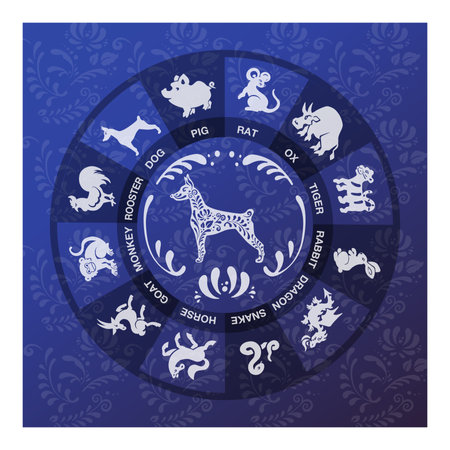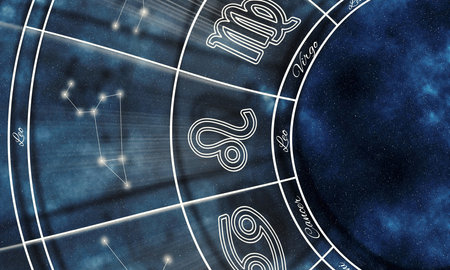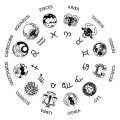Setting the Scene: Horoscopes, Chavs, and Cheeky Nandos
Picture this: a group of British youths, fresh out of college (or maybe just bunking off), gathered around a table scattered with Greggs sausage rolls, sipping on questionable cans of energy drink, and debating whether it’s finally time for a cheeky Nando’s. The conversation inevitably drifts from last night’s Love Island drama to something far more cosmic—horoscopes. Yes, astrology is no longer the preserve of middle-aged aunts with too many cats; it has slipped seamlessly into the daily banter of Britain’s younger crowd. Is Mercury in retrograde to blame for your mate ghosting you? Or was it simply the aftermath of that ill-advised text sent after one too many pints? In 21st-century Britain, star signs have become as essential to youth culture as TikTok trends and deciding which trainers are “proper fit.” Maybe the zodiac is just another way to dodge accountability for dodgy life choices—after all, why admit you’ve made a mistake when you can blame it on being a classic Gemini?
Astrology App Addiction: Swiping Right on Star Signs
Once upon a time in the UK, the only thing a British youth needed to know about the stars was how to spot Orion’s Belt on a soggy DofE expedition. Fast-forward to the 21st century and suddenly, teens and twenty-somethings are swiping right not just on potential partners, but also on astrology apps faster than you can say “Mercury retrograde.” The modern British youth has taken horoscopes out of the back pages of questionable tabloids and into the palm of their hand—literally—via apps with more push notifications than your nan’s WhatsApp group.
The real thrill now isn’t just reading your daily star sign in Metro while pretending not to make eye contact with anyone on the tube. It’s managing to squeeze an entire birth chart (moon sign, rising sign, Venus in Gemini—don’t get us started) into a single Snapchat streak or TikTok comment. There’s something almost heroic about being able to say, “Sorry I ghosted you, love, Mercury’s in retrograde,” and having your mates actually nod in understanding instead of sending for an exorcist.
Why Are Astrology Apps So Popular?
| Reason | Example |
|---|---|
| Bite-sized Personality Insights | “I’m not moody, I’m just a Cancer rising!” |
| Instant Conversation Starters | “Your Moon is in Scorpio? No wonder you’re so dramatic.” |
| Social Media Flexing | Proudly sharing your full chart on Instagram stories like it’s GCSE results day. |
The Great Birth Chart Challenge
If fitting the word “antidisestablishmentarianism” into a tweet is the linguistic Olympics, then summarising your star-studded destiny within a 24-hour Snapchat story is pure art. British youth have mastered the subtle craft of dropping “my Saturn return is coming” into casual conversation without being handed herbal tea or asked if they need a lie-down. And honestly, if someone knows your moon sign before they know your surname, it’s just another Tuesday in modern Britain.

3. Belief, Banter, and Bloody Skepticism
If you think British youth are sitting around earnestly consulting their horoscopes before deciding whether to have beans on toast or a cheeky Nando’s, think again. A recent survey paints a picture far more nuanced (and far more sarcastic). Sure, some swear Mercury retrograde is responsible for missed buses and catastrophic Love Island rejections. But for most, horoscopes are less ‘life guidance’ and more ‘group chat banter’.
Ask a room full of Gen Z Brits if they believe the stars are plotting their doom and you’ll get a spectrum of answers: from the die-hard astrology app subscribers to those who use their star sign as an excuse for ghosting someone on Tinder (“Sorry babe, my moon’s in Taurus”). For every one who blames Mercury for everything but the weather, there are five more ready with a meme, usually at Gemini’s expense. And let’s be honest—if you can’t take the mickey out of your mate’s sign, are you even British?
The real magic is in the banter. Horoscopes have become prime meme fodder, with daily predictions providing endless material for ribbing mates and crafting TikToks that might just go viral (or at least get a few “dead 😂” replies). It’s less about cosmic destiny, more about cosmic comedy. That said, there’s always that one friend who brings up their rising sign at pre-drinks—and everyone else pretends not to roll their eyes too hard.
So do British youth really believe Mercury is out to get them? Some do, most don’t—but nearly all agree it makes cracking content for group chats and Insta stories. In true British style: a little belief, a lot of banter, and just enough bloody skepticism to keep things interesting.
4. From Mystic Meg to TikTok Tarot: Evolving Influencers
Once upon a time, in a land of four channels and dodgy TV aerials, British youth would gaze in awe at Mystic Meg on the telly, clutching their cups of PG Tips and wondering if Mercury retrograde really could be blamed for their GCSE results. Now, fast-forward to the 21st century, and star-gazing has gone digital—no crystal ball required, just Wi-Fi and a dubious mobile signal. The once-revered horoscopes column at the back of The Sun has been replaced by TikTok tarot readers who shuffle cards with more drama than EastEnders’ Christmas specials, and Instagram infographics promising to explain why your ex ghosted you (spoiler: blame Venus).
As influencer culture swept through Blighty faster than a Greggs sausage roll vanishing at lunch, so too did astrological advice evolve. Today’s British youth are spoilt for choice: should they consult the OG telly astrologer? Or trust that one mate in the flat-share who owns more tarot decks than clean mugs and insists every new moon is a reason to manifest better Wi-Fi?
Era |
Main Horoscope Source |
Typical Advice Received |
|---|---|---|
| 1990s | Mystic Meg on TV / Newspaper columns | “You may meet a tall, dark stranger.” |
| 2000s | Early online forums & magazines | “Mercury is retrograde – avoid big decisions.” |
| 2020s | TikTok Tarot / Insta Astrologers / Flatmate Oracle | “Don’t text your ex during eclipse season or you’ll regret it.” |
The language may have changed (let’s be honest, “moon in Pisces” now means it’s time for emotional oversharing on group chats), but the thirst for cosmic guidance remains strong among British youth. Instead of Mystic Meg’s velvet-clad predictions, it’s all about bite-sized astrology via social media—plus endless memes poking fun at Capricorns’ commitment issues. Whether you’re following an influencer or just trying to avoid your flatmate’s latest lunar ritual, one thing’s clear: stars might not control your fate, but they sure do influence your algorithm.
5. Pub Debates and Living Room Laughs: Horoscopes in Social Life
If you think British youth are just chatting about the weather or arguing over whether pineapple belongs on pizza, think again. The twenty-first century has seen horoscopes sneak into the social fabric of the UK faster than you can say “I’m a Sagittarius, actually.” In pubs from Manchester to Brighton, star signs are now as crucial to conversation as that fifth pint—or, let’s face it, as the classic debate over which Premier League club is truly the best (hint: your mate’s always wrong).
The Ice-Breaker Evolution
Forget awkward silences or painful small talk about train delays; these days, asking “What’s your sign?” is the new way to break the ice before things get blurry around pint number five. It’s almost an unspoken rule: if you don’t know your sun, moon, and rising sign, can you even claim to be part of Gen Z? For some, knowing someone’s astrological chart is apparently more vital than remembering their birthday or even their name—priorities, right?
Rising Signs vs. Football Sides
Here’s where things get peculiarly British: allegiance to a football team used to be the only tribal badge worth having. But now? Astrological compatibility is giving club loyalty a run for its money. Imagine this: “Oh, you’re a Leo rising? Sorry love, we’re just not cosmically aligned… but at least you don’t support Spurs.” If your rising sign clashes with someone’s moon, expect mockery, banter, and possibly an exasperated sigh worthy of Shakespeare.
From Banter to Belief (Sort Of)
Of course, most of this is delivered with tongue firmly in cheek—a bit like pretending to care about Love Island eliminations. Yet beneath all the laughter and eye-rolling, there’s a genuine curiosity. Whether it’s a serious belief or just another excuse for friendly ribbing, horoscopes have found their place in British social life. So next time you’re nursing a lager in a crowded living room, don’t be surprised if someone asks for your birth time alongside your drink order.
Tea Leaves and Future Tides: Where Next for British Youth and Astrology?
As we gaze into the metaphorical crystal ball—or, more accurately, squint at a suspiciously murky cup of PG Tips—it’s time to ask: what does the future hold for British youth and their starry-eyed obsession with horoscopes? Will astrology remain a tongue-in-cheek, slightly tipsy pastime, best enjoyed after a bottomless brunch with mates? Or is it destined to ascend the social ranks, rubbing shoulders with iconic national pastimes like impeccably disciplined queuing and moaning about drizzle?
The Age of Irony or a New Golden Age?
Let’s be honest—Brits have never been ones to take themselves too seriously. The average young Londoner can recite their sun, moon, and rising signs faster than they can list the stops on the Northern Line, but there’s always that glint of mischief behind it. Astrology is as much about banter as it is about belief. But who’s to say irony can’t lead to devotion? Stranger things have happened (see: Marmite).
From Pub Banter to Subcultural Staple
If TikTok trends and group chats are anything to go by, astrology might just be limbering up for its big moment. Today’s memes about Mercury retrograde could very well become tomorrow’s badges of generational identity. Picture this: in twenty years’ time, will British youth gather in parks, not for impromptu games of footie, but for mass birth chart readings under cloudy skies? Will “What’s your sign?” replace “Alright?” as the default greeting at Wetherspoons?
A Nation of Skeptics… or Secret Believers?
Of course, scepticism runs deep in British veins—just ask anyone who’s ever tried to convince their nan that oat milk isn’t witchcraft. So perhaps astrology will forever occupy that sweet spot between earnest belief and good-natured ribbing. Much like discussing the weather, talking horoscopes provides a safe conversational haven—no real commitment required, just enough room for a knowing wink.
The Final Forecast
Whether astrology becomes Britain’s next great subculture or remains relegated to late-night group chats and drunken garden parties is anyone’s guess (and if you know the answer, please DM us your chart). One thing is certain: so long as there are stars above and tea leaves below, British youth will find new ways to interpret both—with a healthy dose of sarcasm and an umbrella at the ready.


